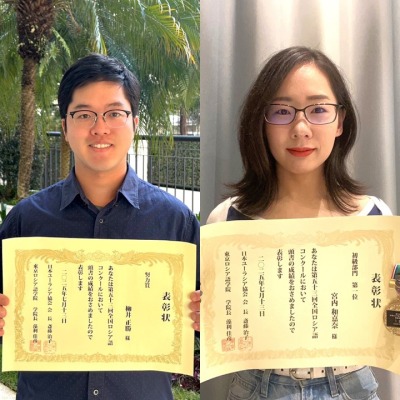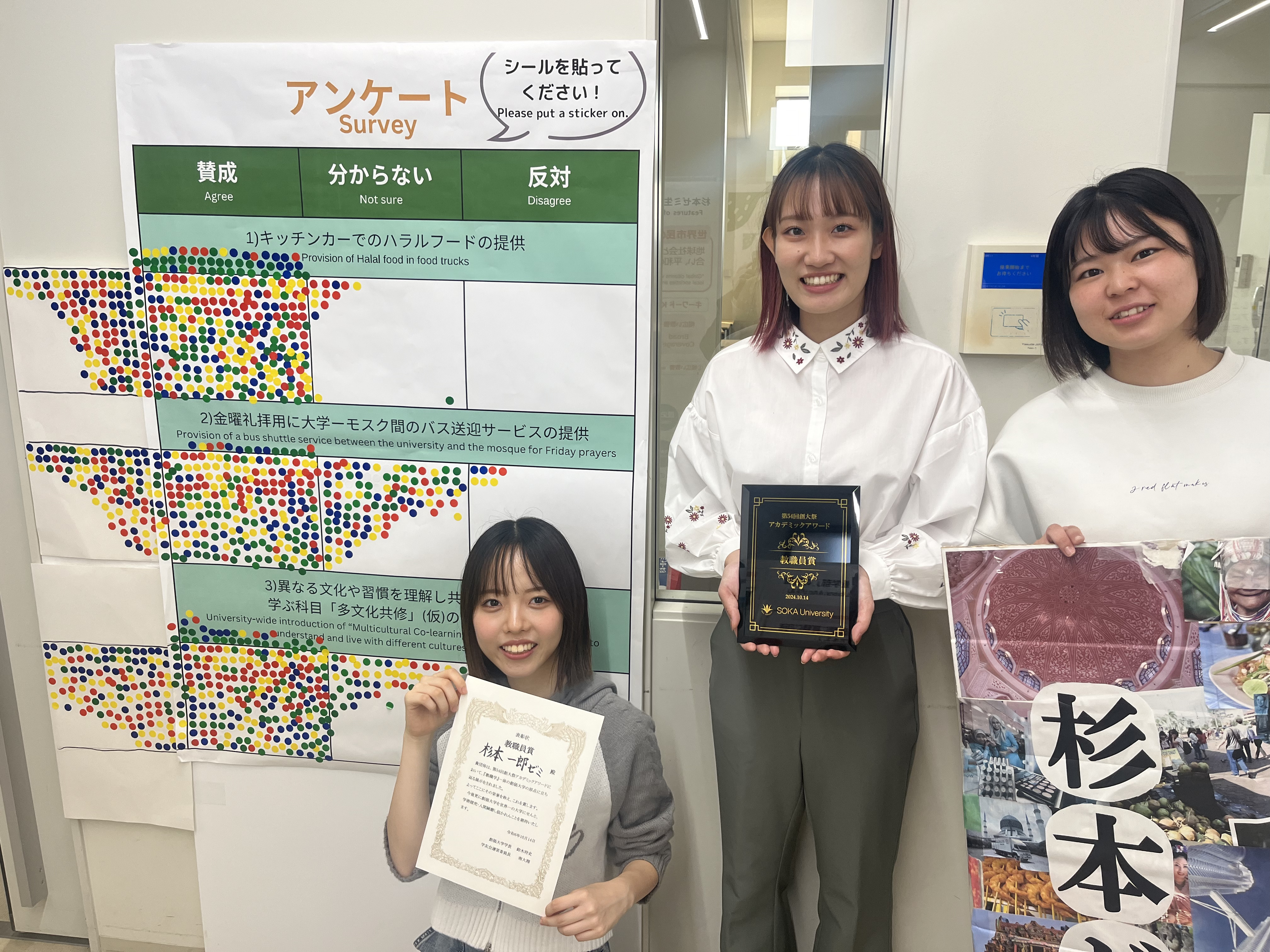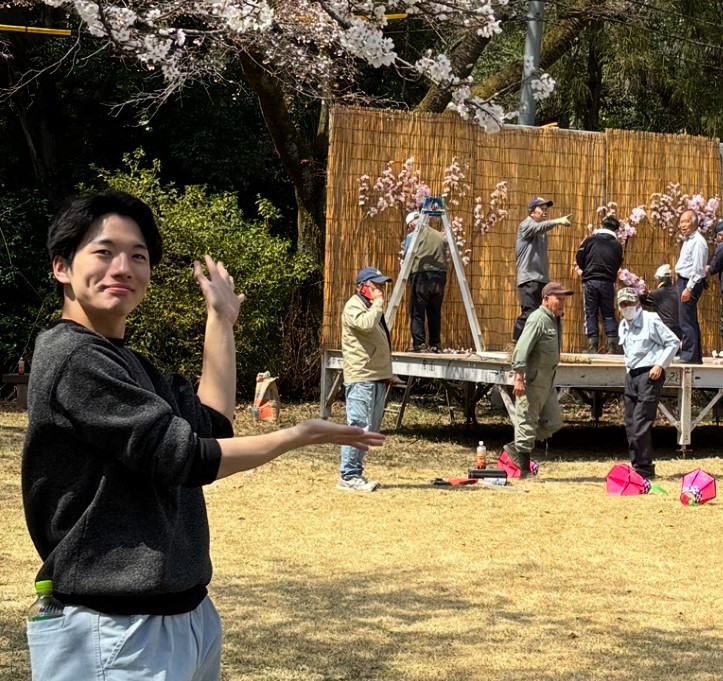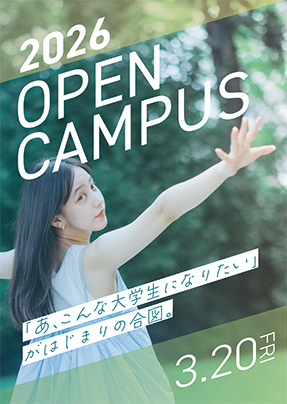Pursuing the ambition he developed during his university days, he aims to contribute to solving global issues

Hideo Sugiyama
Faculty of Letters Department of Human Studies Graduated in March 2013 / 38th undergraduate class
Japan International Cooperation Agency (JICA)
Chief Investigator, Investment and Loan Review Division, Examination Department and Macroeconomic Review Division
At the Japan International Cooperation Agency (JICA), Sugiyama is responsible for reviewing the profitability and repayment potential of loan aid projects, which support projects carried out by governments and private companies in developing countries through loans and investments. This is a highly specialized job that involves analyzing the macroeconomic and political situations of the target countries, as well as the financial and business risks of the target companies, but when he entered university, he never imagined he would end up working in a global field in the future. We asked Sugiyama to reflect on how his passion to "contribute to solving global issues" was born and cultivated.
What first sparked your interest in international cooperation?
When I first entered university, my parents were both in the education industry, and I liked geography and history, so I thought I might become a social studies teacher in the future. But my vague thoughts changed when I took a career course called "World Business Forum" in the spring semester of my first year. In this class, alumni who were active globally shared their experiences, and I felt a strong admiration for the sight of my seniors working on the world stage.
I didn't know how to get an international job, but I thought that language skills were essential, so I started by aiming to get high scores on the TOEIC and TOEFL tests, and I began to study English between classes, activities with the softball club, and part-time work. After the first year, I participated in a three-week language study abroad program in Melbourne, Australia, where I stayed with a host family. Some of the participants are still friends to this day. I think the reason I was able to work hard and not feel alone despite my lofty goals was largely due to the long-term study abroad I did while I was a student, and the fact that I met friends who shared my goal of being active on the world stage after graduation.
Furthermore, in the spring semester of my second year, I took an English conversation class where we discussed topics such as poverty in Africa, which opened my eyes to the complexity of the issues facing developing countries. I began to want to do a job that would help solve global issues, and I became interested in working for an international organization.
How did your year of study in the United States help you grow?
I took a year off during my third year to study abroad at Bellevue College in the suburbs of Seattle, USA.

Since I was Faculty of Letters, I knew that no matter what industry I was going to work in in the future, I would need to understand business, so I studied a wide range of topics such as marketing and finance. Among them, I chose accounting on the advice of a senior member of the "World Association" (a study abroad support organization for people who have studied abroad for a long time), which I studied at the same university a few years ago, and it is an impressive subject that will lead to my current job. It was a practical class where I could learn the basic concepts of accounting, how to read balance sheets and income statements, and how to keep books.
During my internship while studying abroad, I worked at two places: a financial institution that provides wealth management services to support asset management for the wealthy, and an NPO that provides microfinance services (small loans to the poor) in Ghana. I discovered the appeal of finance in class, and by being exposed to financial work in contrasting organizations through my internship, and by reading the autobiography of Muhammad Yunus (founder of Grameen Bank in Bangladesh and Nobel Peace Prize winner) around the same time, my interest in finance as a means of development and poverty reduction deepened. I thought I needed to have some kind of expertise to work in the field of international cooperation, so I decided to focus on finance.
After returning to Japan from my studies and completing my job search, my desire to work in the field of international cooperation grew stronger through my experiences as a volunteer in the Philippines.
Please tell us about your career path leading up to your current job.
After graduating from university, I worked for a foreign securities company for about four and a half years. I was attracted by the interesting and deep aspects of the financial industry, and at one point I considered continuing my career there. However, when I traveled to Vietnam and Indonesia during my vacation and found myself surrounded by bright sunshine and the hustle and bustle of developing cities, I once again realized that my path was one in which I should pursue international cooperation. The dealing room at the securities company was a stimulating space, but I felt drawn to being on the ground in a developing country where I could see new scenery.
I left the securities company and went on to graduate school at the University of Manchester in the UK to study development politics. I chose development politics rather than finance because I wanted to understand complex issues such as development and poverty from the perspective of the politics that determine the rules of economic activity and the redistribution of wealth. During my master's degree, I went to Uganda in Africa and conducted fieldwork including interviews on the theme of examining, from a political perspective, a land system so complex that it had sparked a civil war.
After receiving my master's degree, I returned to Japan and joined JICA in 2018. JICA, which is responsible for Japan's ODA (Official Development Assistance), has a great influence in the world of international cooperation. I felt like I was at the starting line to achieve the ambitions I had as a student.


With fellow students in the same course
Please tell us about your work at JICA.
During my first three years, I was part of a team in charge of the Philippines in the Southeast Asia and Oceania Department, where I was involved in new projects related to roads, water supply and sewerage, agriculture, and other areas. This work could be described as being on the front lines of development cooperation, mainly related to local infrastructure. One particularly memorable experience was working on a sewerage development project in Davao City, Mindanao, where I directly proposed a sewerage development plan based on survey results to then-Mayor Sara Duterte (currently Vice President of the Philippines). This experience gave me a real sense of the dynamism of JICA's work, as we sometimes had to persuade and collaborate with local government leaders to move the project forward.
Since 2021, I have been working in two teams within the Screening Department: the Macroeconomic Screening Division and the Investment and Loan Screening Division. The Macroeconomic Screening Division analyzes and evaluates the macroeconomic and political situations of the countries in Latin America and the Pacific Islands to determine whether they can repay JICA's yen loans (loans to the governments of developing countries). The Investment and Loan Screening Division analyzes the financial and business risks of target companies and assesses their profitability and repayment potential when providing JICA's overseas investment and loans (investments and loans to private companies in developing countries).

Please tell us about the rewards and challenges of your current job.
What's appealing about working in the Credit Department is that you learn something new every day, satisfy your intellectual curiosity, and feel your expertise improve. For example, analyzing the risks of a loan to a private company in a developing country and explaining them to management requires a broad understanding of the company's business and finances, as well as the country's political and economic situation, industry environment, and competitors. Through this analytical process, you not only improve your financial and macroeconomic analysis skills, but also gain a deeper understanding of each country's politics, history, geography, and social situation. I'm confident that this knowledge will be useful when I return to the front lines of development cooperation.
The difficulty of this job is that, as a development aid organization, financial return and risk are not the only criteria for conducting business. Even if a project involves risks that private financial institutions would find difficult to handle, the organization may decide to proceed if it contributes to resolving issues such as infrastructure shortages and has a high "development impact" that contributes to achieving the Sustainable Development Goals (SDGs). In such projects, my team and I constantly discuss how much risk we can accept and how we should provide our opinions as a check on the organization to ensure better decision-making.
Another great thing about this job is that through field trips, I can link my desk analysis with discoveries on the ground and make new discoveries that I would not have noticed if I had stayed in Japan. In the Screening Department, I have had the opportunity to travel to five countries so far: Ecuador, Ghana, India, Bangladesh, and the Maldives. These trips are always stimulating and energizing. Seeing the development cooperation sites and the lifestyles and cultures of people in developing countries with my own eyes is an irreplaceable and valuable experience. I often hear words of gratitude toward JICA and Japan when I'm there, and each time I feel glad that I'm doing this job.

Please give a message to your juniors who are interested in attending Soka University or working in international development or international cooperation.
After entering university, I became interested in working globally and international cooperation, and with the support of good friends, seniors, faculty, and staff, I was able to grow into someone I never imagined I would be before enrolling. I am surrounded by many friends with stories similar to mine. And even after graduating, all of these friends continue to move forward in society, sometimes struggling, but encouraging each other, which is a great thing about Soka University and makes me proud.
If you have even the slightest interest in international cooperation or development cooperation, I encourage you to travel to developing countries as a student and experience the local nature, cityscapes, and people's lives with all your senses. Of the world's 8 billion people, more than 6 billion live in emerging and developing countries. While the West has a strong influence, the world is by no means limited to the West. When I look at the countries of Southeast Asia and South Asia, where I am responsible and where I hope to continue to work, I sometimes feel that there are still things that developed countries have lost. Because they are developing countries, I am often struck by how people help each other, do not complain about the environment, and live resilient lives. Such moments can lead to thinking about the future of a country and what I can do to contribute to it.
I hope that you too will broaden your horizons to the wider world, not be afraid of failure, and spend your student life without regrets at Soka University, where you will find an environment and network that will help you grow.

< Faculty of Letters Department of Human Studies Graduated in March 2013>
Hideo Sugiyama
Hideo Sugiyama
- [Favorite saying]
- Only those who have the courage to take a penalty can miss it - Roberto Baggio
- [Personality]
- optimism
- [hobby]
- Guitar, collecting vinyl records, watching baseball
- [Books I've read recently]
- The Bottom Portfolio - Living on $2 a Day / J. Mordak et al.
Pickup
Passing the difficult Tokyo Metropolitan Government employee exam: 4 years of growth fueled by setbacks

Learning Russian and building a bridge of peace in these difficult times

Halal food truck sales realized from multicultural coexistence exhibition

Spreading Swahili and African culture: The history of friendship woven by the Pan-African Friendship Association

Revitalizing Hachioji, the university's "hometown," with the students' youthful energy, ideas, and drive







